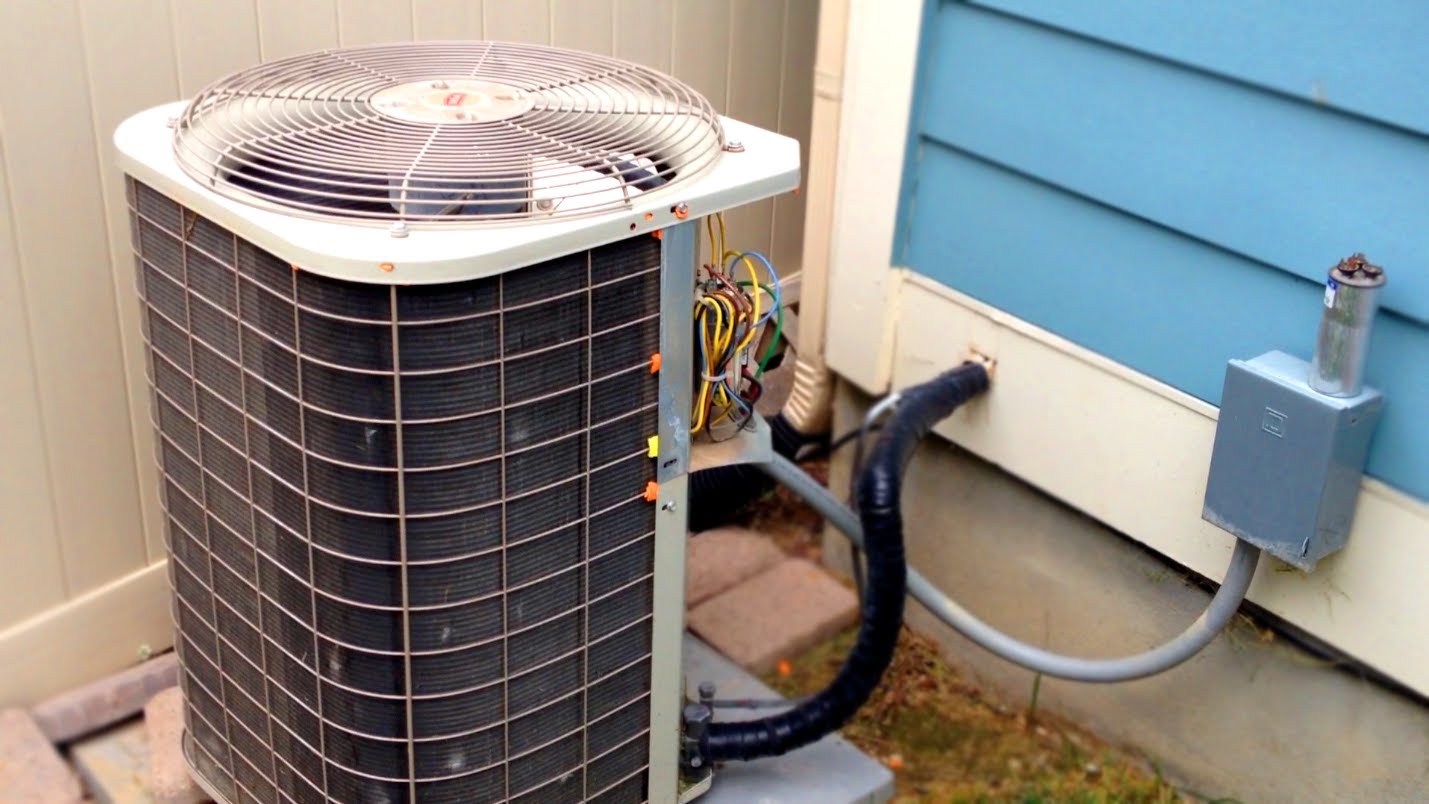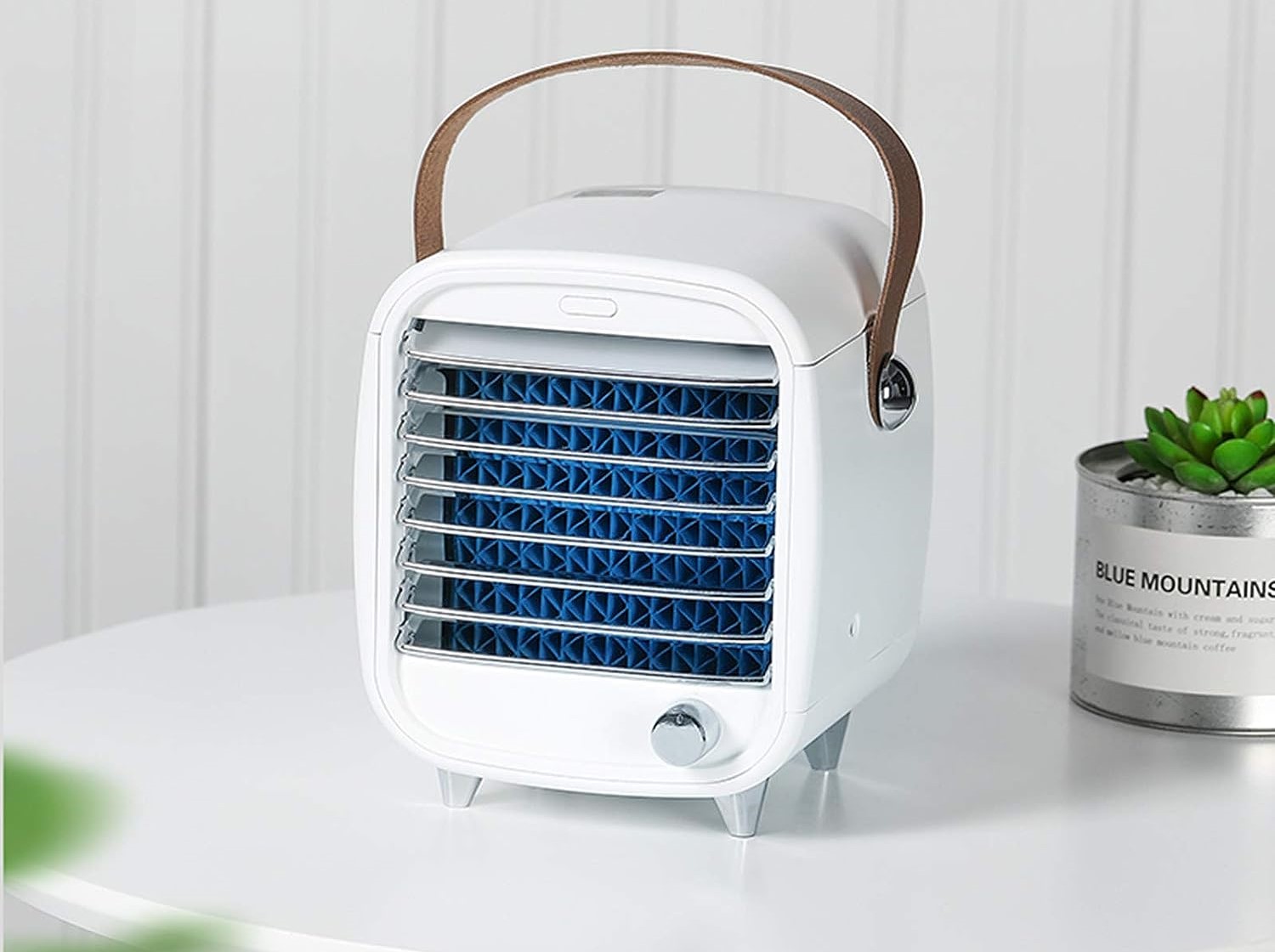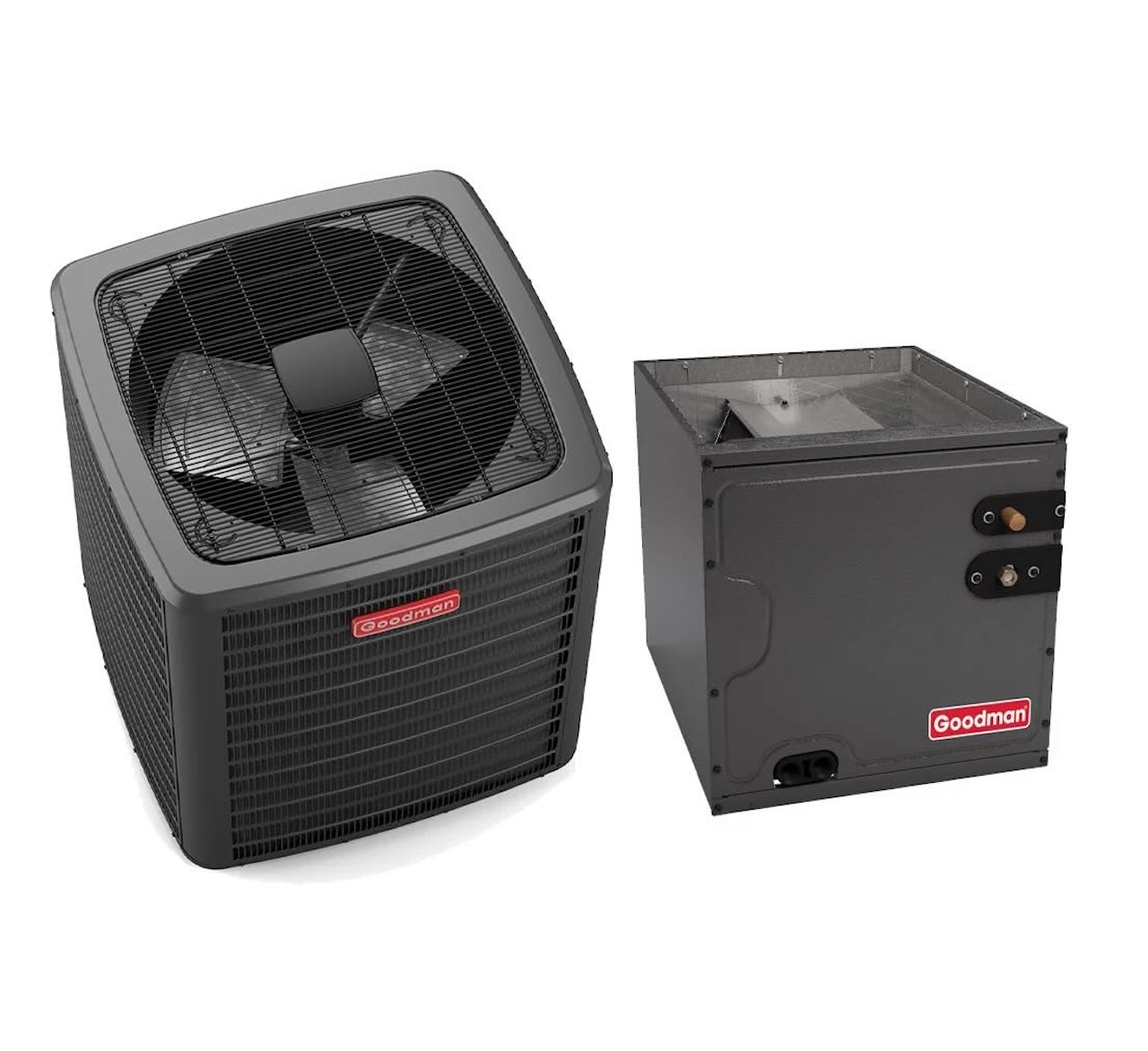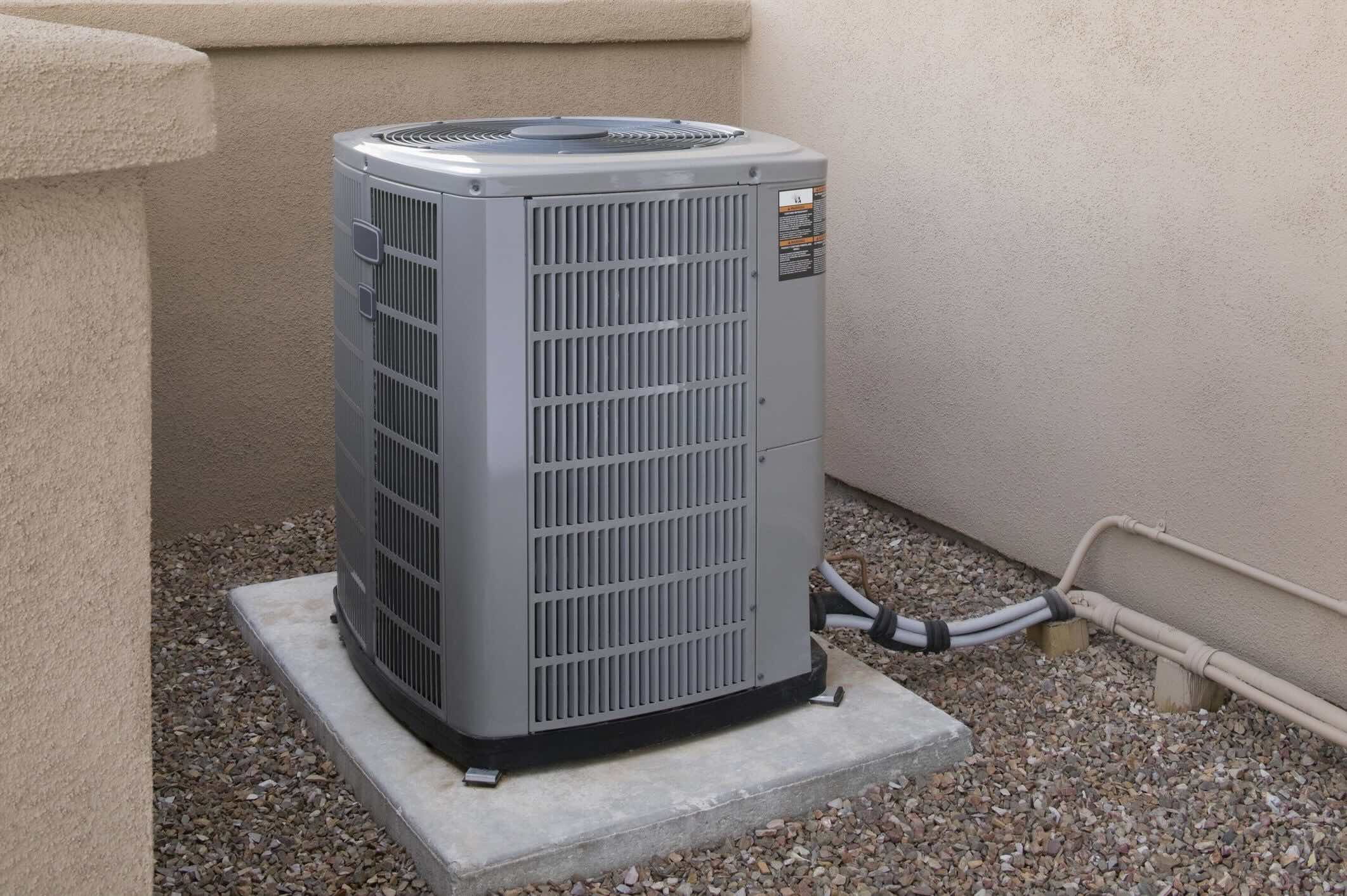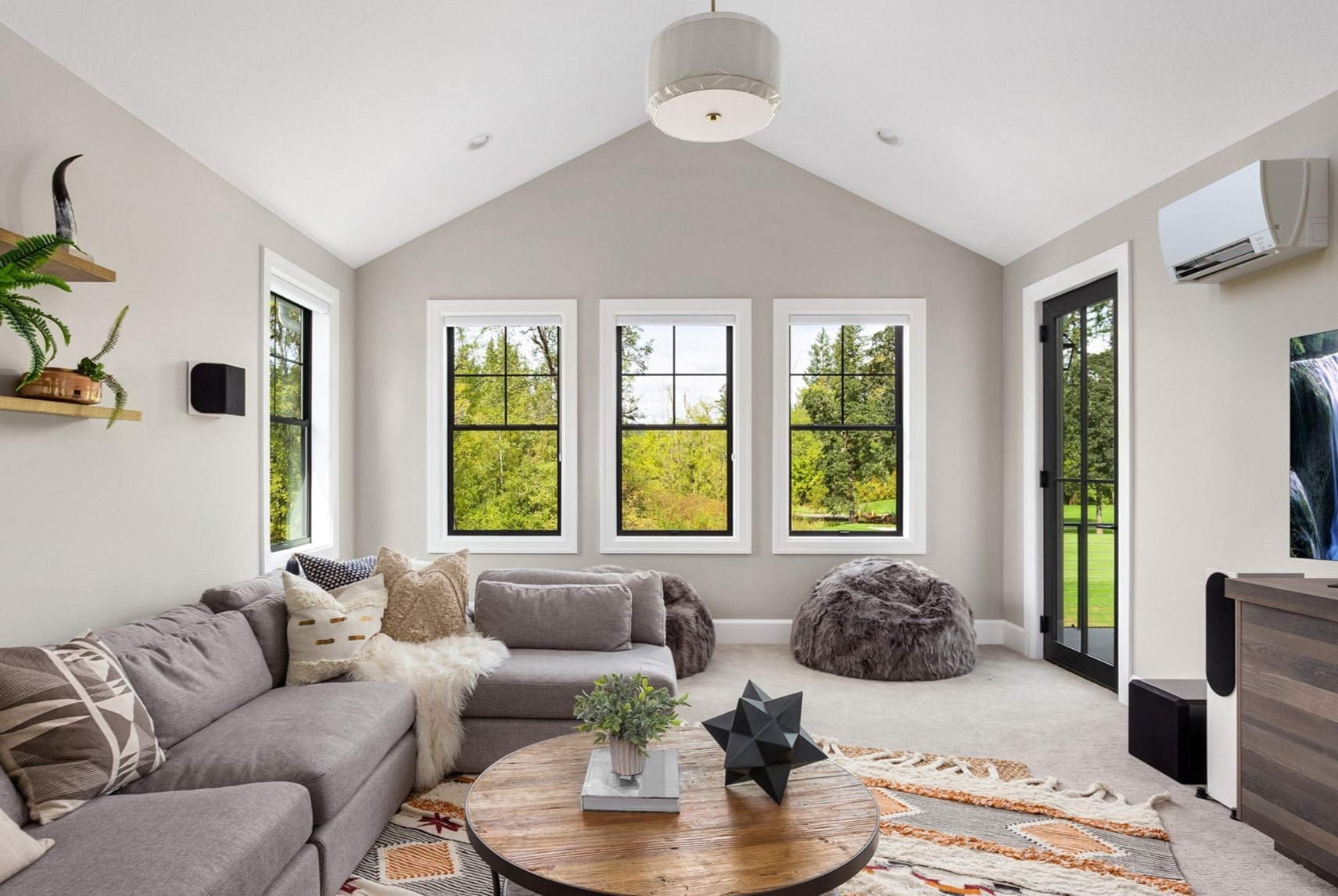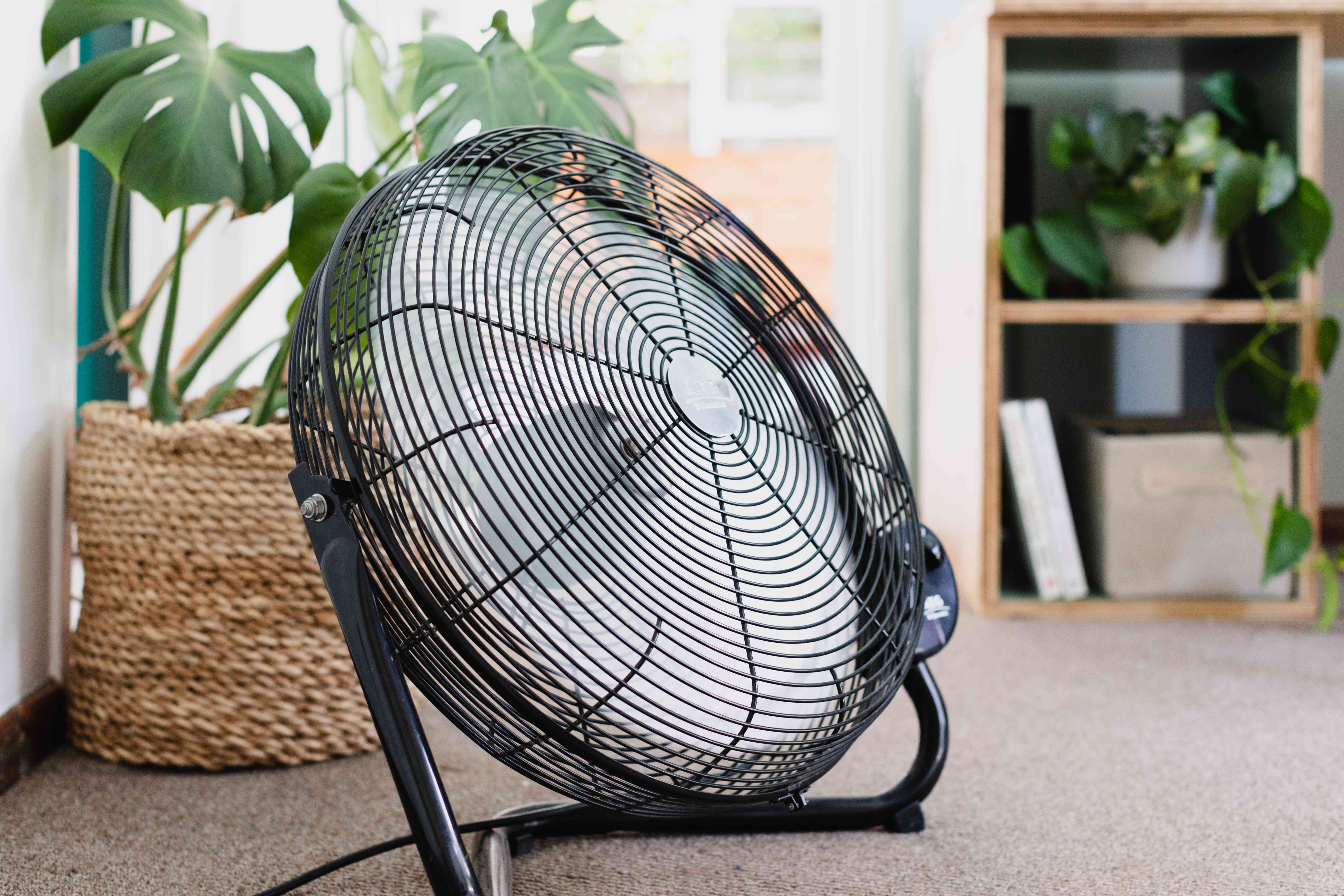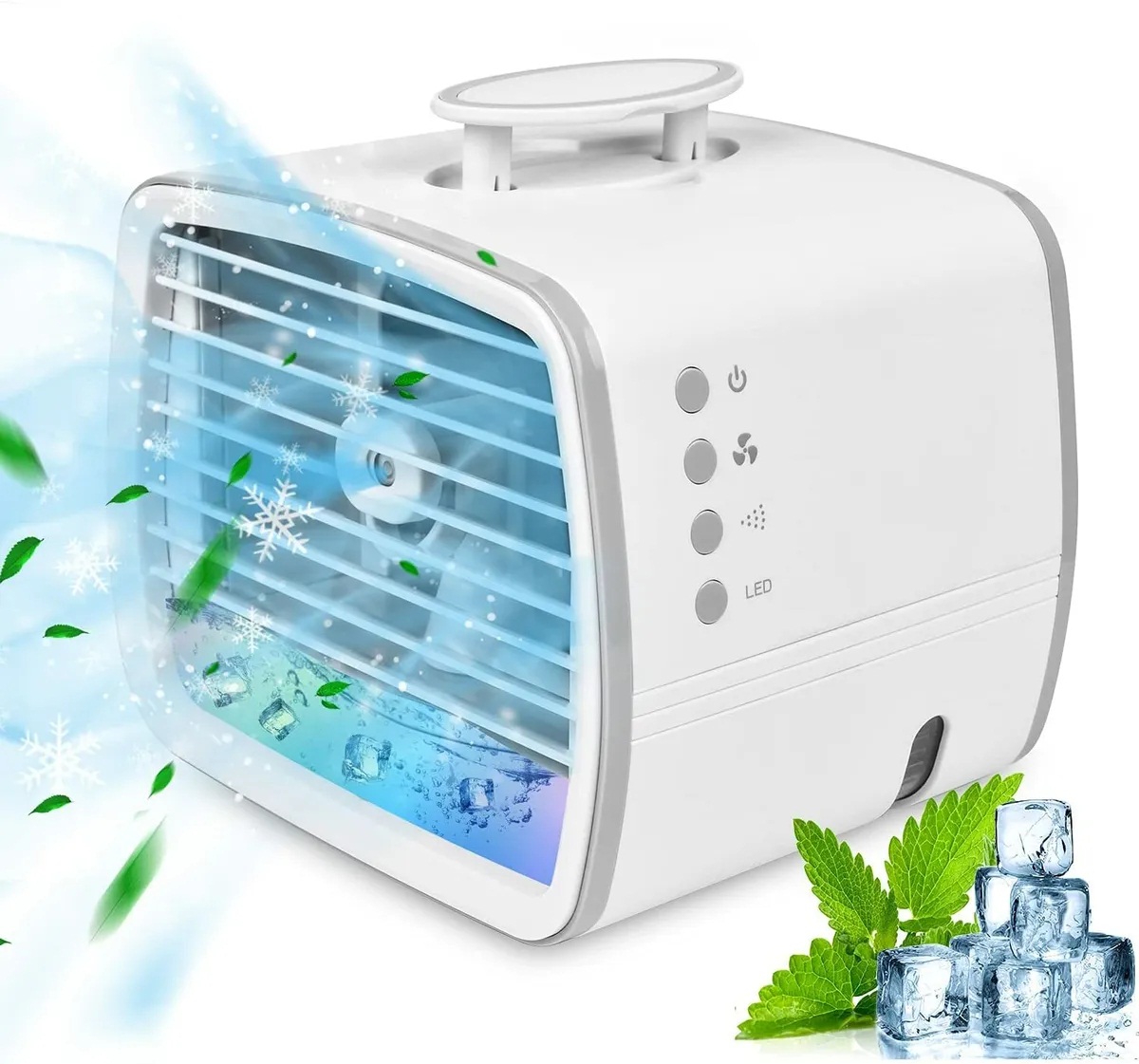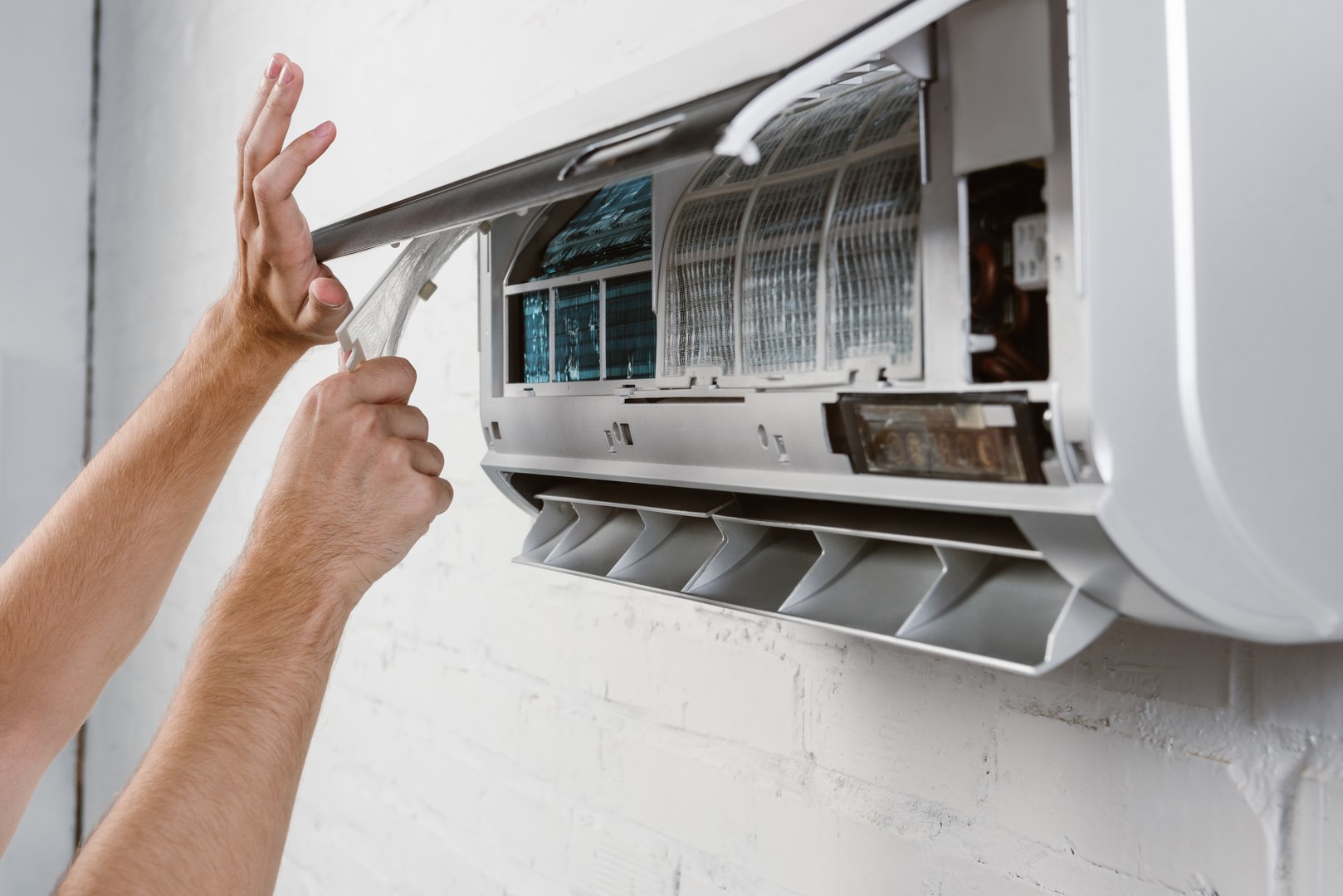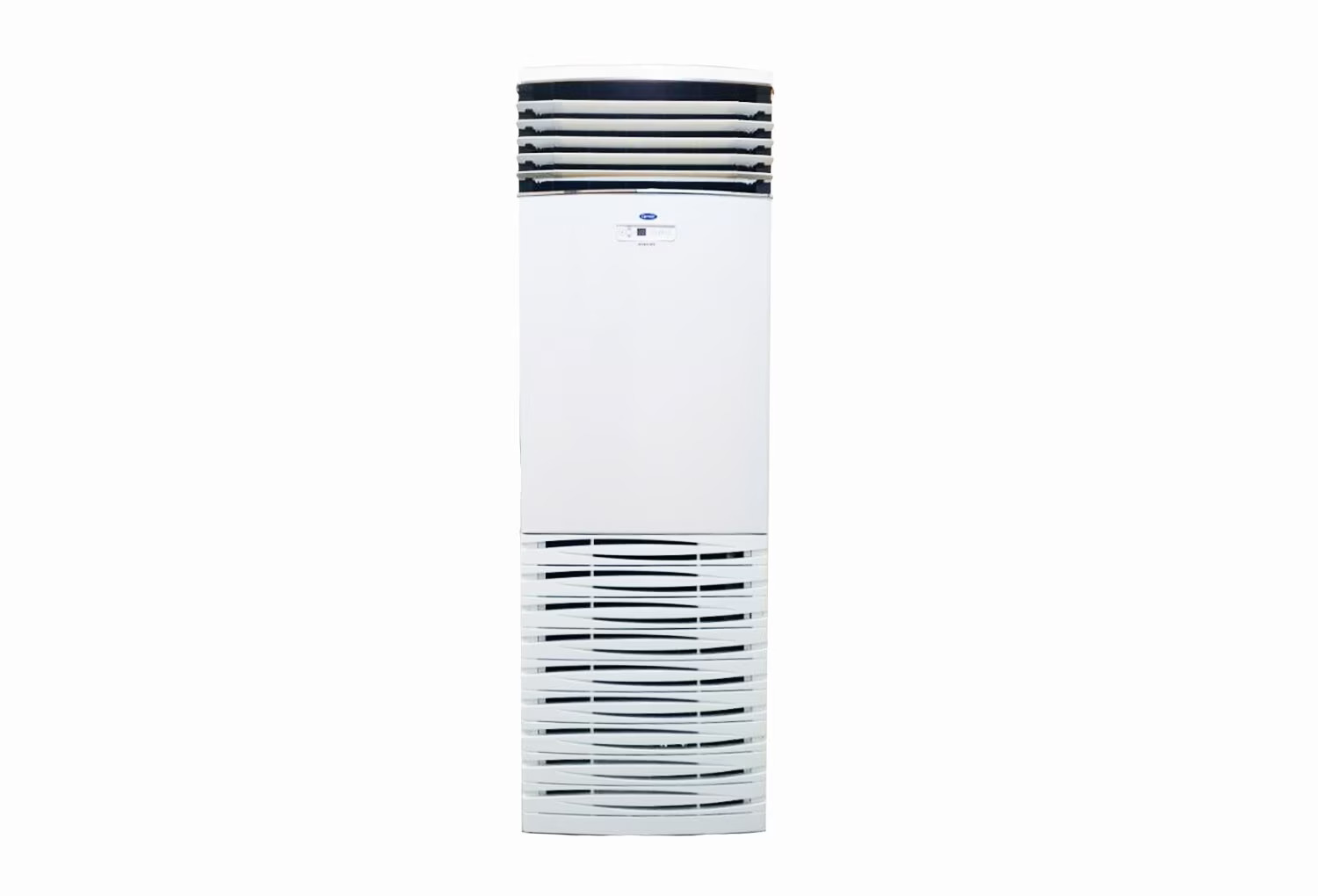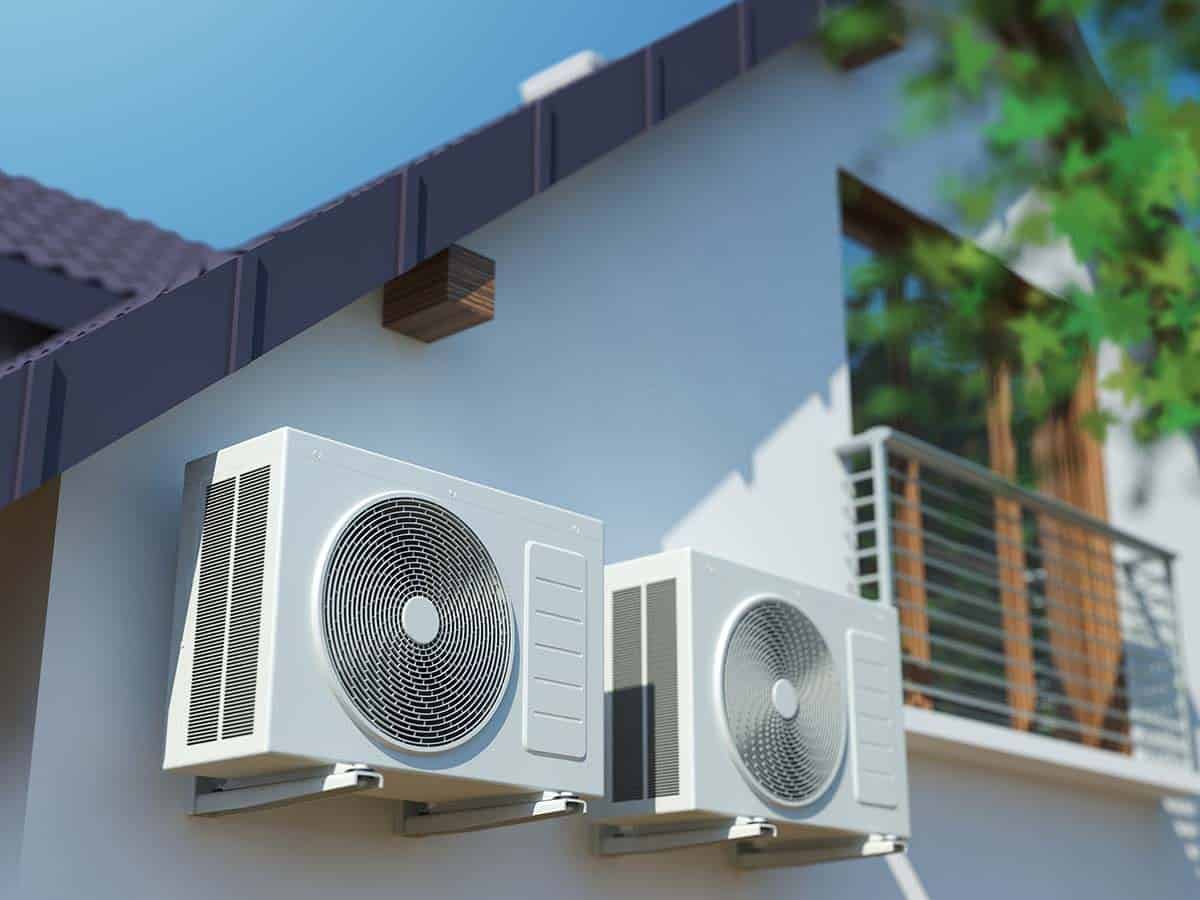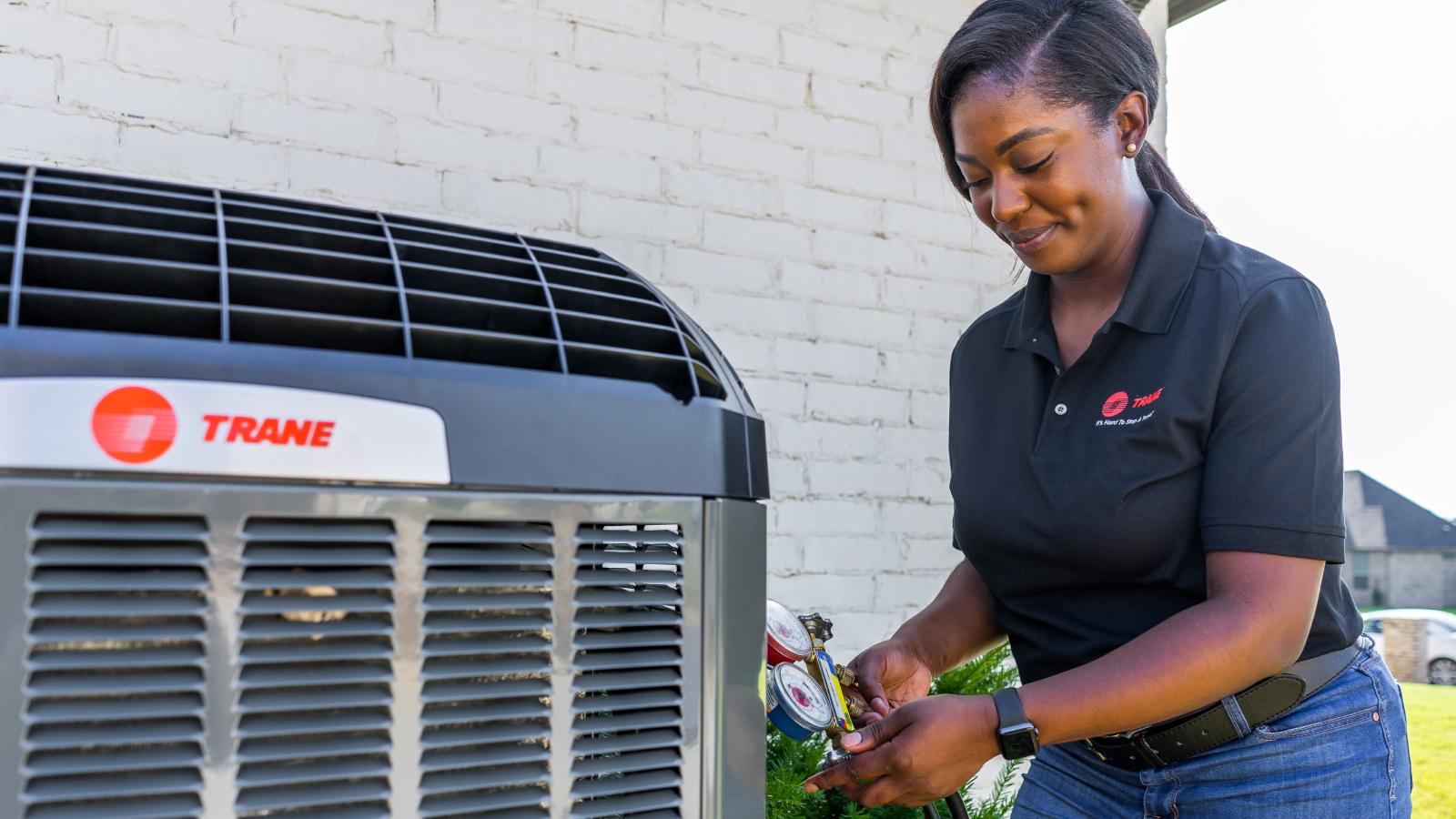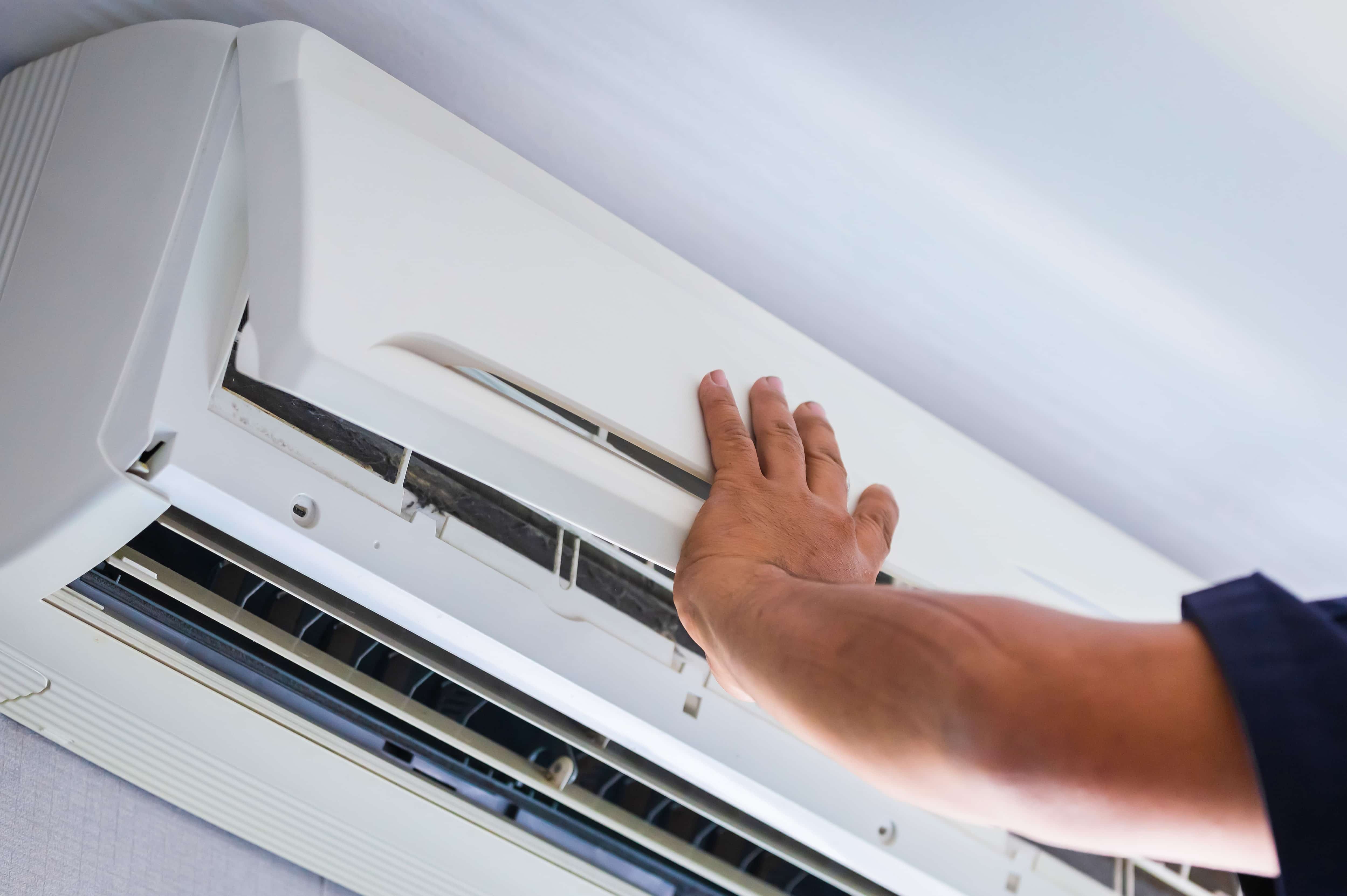Home>Home Maintenance>How Much Can An Air Conditioner Cool
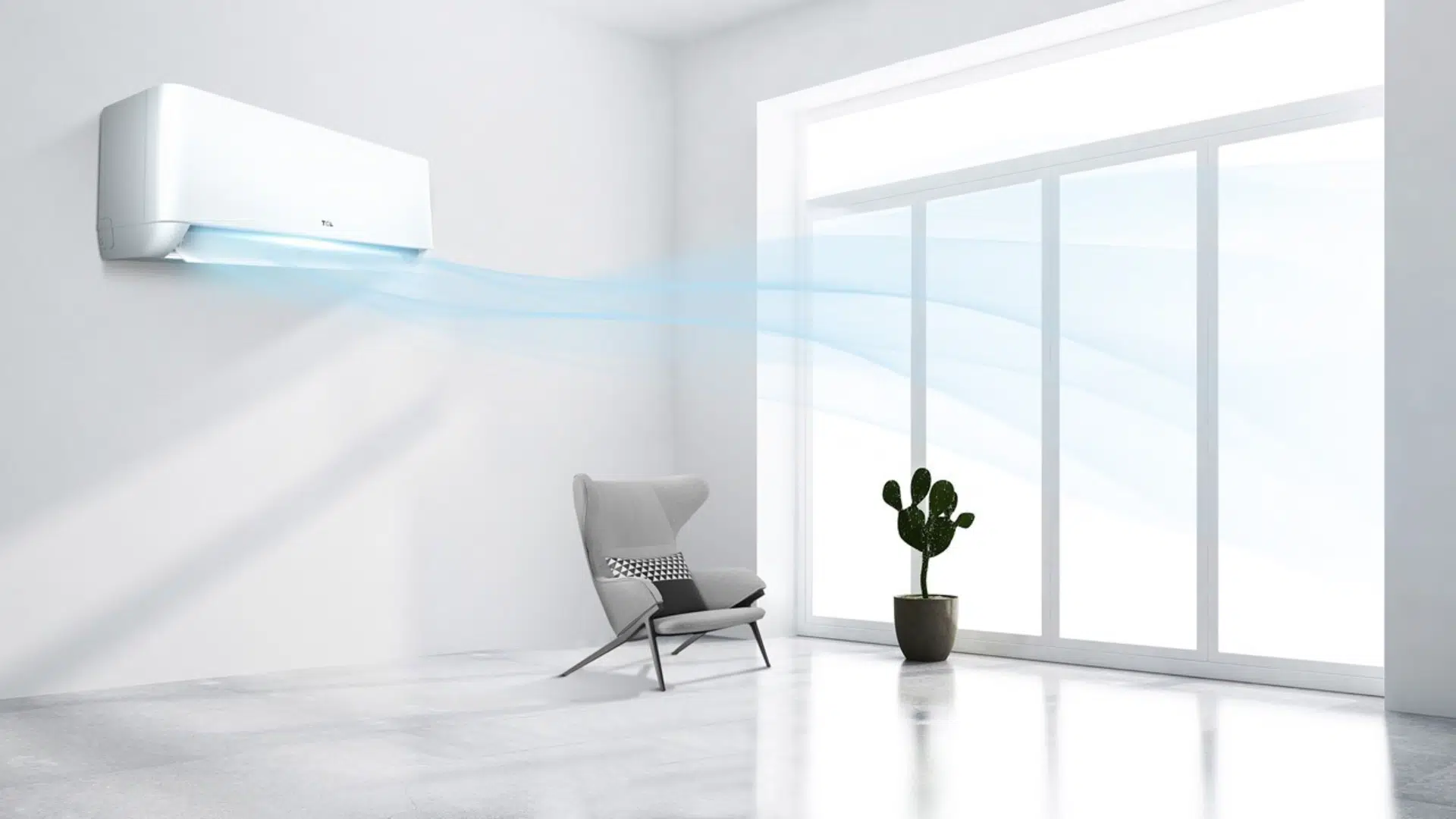

Home Maintenance
How Much Can An Air Conditioner Cool
Modified: October 20, 2024
Learn how much an air conditioner can cool your home with proper home maintenance. Find out the benefits of regular AC maintenance and improve your cooling efficiency.
(Many of the links in this article redirect to a specific reviewed product. Your purchase of these products through affiliate links helps to generate commission for Storables.com, at no extra cost. Learn more)
Introduction
Welcome to the world of air conditioning, where the scorching heat of summer becomes a thing of the past. Air conditioners have revolutionized our lives by effectively cooling our indoor spaces and creating a comfortable environment even in the hottest weather.
But have you ever wondered how much an air conditioner can actually cool? How does it work? And what factors affect its cooling capacity? In this article, we’ll delve into the fascinating world of air conditioning to help you understand the ins and outs of how much an air conditioner can cool and how to choose the right size unit for your needs.
So let’s embark on a journey to discover the secrets of air conditioning and unleash the full potential of your cooling system.
Key Takeaways:
- Air conditioners use a refrigeration cycle to cool indoor air by removing heat, making hot summer days a thing of the past. Understanding BTUs and room factors helps choose the right-sized unit for efficient cooling.
- Factors like room size, insulation, and climate impact an air conditioner’s cooling capacity. Choosing the right size unit and enhancing efficiency through maintenance and smart practices ensures a cool and comfortable indoor environment.
Read more: How Much Is A Daikin Air Conditioner
How Air Conditioners Work
Before we dive into the specifics of how much an air conditioner can cool, it’s important to understand how these cooling machines work. Air conditioners are complex systems that use a combination of mechanical and chemical processes to remove heat from the air, offering respite on hot summer days.
At the heart of an air conditioner is a refrigeration cycle, which is responsible for extracting heat from indoor air and expelling it outside. The key components of an air conditioner include:
- Compressor: The compressor pressurizes the refrigerant, a special chemical fluid that plays a crucial role in the cooling process.
- Condenser: The condenser receives the hot, pressurized refrigerant from the compressor and cools it down by transferring the heat to the surrounding environment.
- Evaporator: The evaporator is located indoors and is responsible for absorbing heat from the indoor air.
- Expansion Valve: This valve regulates the flow of the refrigerant and ensures that the correct amount of cooling is achieved.
Now, let’s walk through the step-by-step process of how an air conditioner cools the air:
- The compressor squeezes the refrigerant, increasing its pressure and temperature.
- The heated refrigerant flows to the condenser where it releases heat to the surrounding environment, and as a result, the refrigerant cools down and turns into a high-pressure liquid.
- The high-pressure liquid refrigerant enters the expansion valve, which allows a controlled amount of the refrigerant to flow into the evaporator.
- In the evaporator, the low-pressure liquid refrigerant rapidly expands, causing it to vaporize while absorbing heat from the indoor air. This process cools down the indoor air.
- The cooled indoor air is then circulated back into the room, while the warmed refrigerant returns to the compressor to start the cycle all over again.
This continuous cycle of evaporation, condensation, and compression is what enables an air conditioner to cool down the indoor space efficiently.
Now that we have a basic understanding of how air conditioners work, let’s explore the concept of BTUs and how they are relevant to the cooling capacity of these systems.
Understanding BTUs
When it comes to measuring the cooling capacity of air conditioners, BTUs (British Thermal Units) play a crucial role. BTUs are a unit of energy that represents the amount of heat needed to raise the temperature of one pound of water by one degree Fahrenheit.
In the context of air conditioning, BTUs are used to quantify the amount of heat that an air conditioner can remove from the air within a specific period of time. The higher the BTU rating, the more cooling power the air conditioner has.
However, it’s important to note that the cooling capacity required for a space depends on various factors, such as the size of the room, insulation, ceiling height, number of occupants, and heat-generating appliances. As a general rule of thumb, you’ll need approximately 20 BTUs per square foot of space.
For example, if you have a 500 square foot room, you would need an air conditioner with a cooling capacity of around 10,000 BTUs (500 sq. ft. x 20 BTUs/sq. ft. = 10,000 BTUs).
It’s worth mentioning that while higher BTU ratings indicate greater cooling power, it doesn’t necessarily mean that a higher BTU air conditioner is always the best choice. Using an air conditioner with an overly high BTU rating for a small space can lead to inefficient cooling, increased energy consumption, and higher utility bills.
On the other hand, using an air conditioner with a lower BTU rating for a large space may result in inadequate cooling and a constant struggle to maintain a comfortable temperature.
Therefore, it’s essential to find the right balance and choose an air conditioner with an appropriate BTU rating that matches the specific cooling needs of your space.
Now that we understand BTUs and their significance in determining the cooling capacity of an air conditioner, let’s explore some of the factors that can affect an air conditioner’s ability to cool effectively.
Factors That Affect Cooling Capacity
While the BTU rating of an air conditioner gives us an indication of its cooling power, there are several other factors that can influence its actual cooling capacity. Understanding these factors can help you make an informed decision when choosing an air conditioner for your space.
1. Room Size and Insulation: The size of the room plays a vital role in determining the cooling capacity needed. A larger room will require more BTUs to cool effectively. Additionally, the insulation of the room affects cooling efficiency. Poor insulation can result in cooled air escaping and hot air entering the space, making it harder for the air conditioner to maintain the desired temperature.
2. Climate: The climate in which you live can impact how much cooling power you need. If you reside in an extremely hot and humid area, you might require an air conditioner with a higher BTU rating to combat the intense heat.
3. Number of Windows and Sunlight Exposure: Windows play a significant role in heat gain. If your room has a large number of windows or is exposed to direct sunlight, it will receive more heat, requiring an air conditioner with a higher cooling capacity to compensate for the additional heat load.
4. Ceiling Height: The height of the room can affect the cooling capacity needed. Rooms with high ceilings have more volume, which means that a higher BTU rating may be needed to effectively cool the entire space.
5. Number of Occupants: The number of people present in a room can impact the cooling requirements. Each person releases body heat, increasing the overall heat load on the air conditioner. If there are multiple occupants, it may be necessary to choose an air conditioner with a higher cooling capacity.
6. Heat-Generating Appliances: Appliances like ovens, refrigerators, and computers generate heat, which can make the room hotter. If your space has a significant number of heat-generating appliances, you may need an air conditioner with a higher BTU rating to counteract the additional heat.
It’s important to consider these factors alongside the BTU rating when selecting an air conditioner. Choosing a unit that is appropriately sized for your space and takes into account the specific conditions of the room will ensure optimal cooling performance and energy efficiency.
Now that we have explored the factors that can affect an air conditioner’s cooling capacity, let’s take a look at the cooling limits of air conditioners.
An air conditioner can typically cool a room by 20 degrees Fahrenheit, so if it’s 90 degrees outside, it can cool the room to around 70 degrees. Keep in mind that factors like insulation and room size can affect this.
Cooling Limits of Air Conditioners
While air conditioners are designed to cool indoor spaces, they do have their limitations when it comes to extreme temperatures or excessively large areas. Understanding these limitations can help you set realistic expectations and ensure proper usage of your air conditioning system.
1. Extreme Outdoor Temperatures: Air conditioners are designed to cool indoor spaces by transferring heat from the inside to the outside. However, if the outdoor temperatures are extremely high, it can strain the air conditioner’s cooling capacity. In such cases, the unit may struggle to achieve the desired temperature or may have to operate continuously to maintain a comfortable indoor climate.
2. Temperature Differential: Air conditioners can typically cool indoor spaces by around 20 degrees Fahrenheit (11 degrees Celsius) below the outdoor temperature. For example, if the outdoor temperature is 90 degrees Fahrenheit (32 degrees Celsius), the air conditioner can cool the indoor space to approximately 70 degrees Fahrenheit (21 degrees Celsius). Expecting your air conditioner to achieve a significantly lower temperature may exceed its cooling capabilities.
3. Oversized or Undersized Units: Using an air conditioner that is too large or too small for your space can lead to cooling issues. An oversized unit may cool the space too quickly, causing frequent on-off cycles and inadequate humidity control. On the other hand, an undersized unit may struggle to cool the space adequately, resulting in constant operation and energy inefficiency.
4. Multiple Room Cooling: If you have a central air conditioning system that cools multiple rooms, it’s important to consider the limitations of ductwork and airflow distribution. Ensuring proper duct design and balanced airflow can help maintain consistent cooling throughout all the rooms in your home.
5. Size and Layout: Air conditioners are designed to cool specific square footage. If your space is exceptionally large or has a complex layout (such as multiple levels or separated areas), you may need additional air conditioning units or a zoned cooling system to effectively cool the entire space.
Understanding the cooling limits of your air conditioner will allow you to set appropriate expectations and make informed decisions about its usage. If you encounter cooling issues or find that your air conditioner is struggling to cool your space adequately, it’s advisable to consult with a professional HVAC technician to assess the situation and provide recommendations.
Now that we have explored the cooling limits of air conditioners, let’s delve into the importance of choosing the right size unit for your cooling needs.
Read more: How Much Is A Mitsubishi Air Conditioner
Choosing the Right Air Conditioner Size
Choosing the right size air conditioner is crucial for optimal cooling performance and energy efficiency. Installing an air conditioner that is too large or too small for your space can result in various issues, including inadequate cooling, high energy consumption, and decreased comfort. Here are some important considerations when selecting the right air conditioner size:
1. Calculate the Cooling Load: Start by calculating the cooling load, which is the amount of cooling capacity required to cool your space effectively. Factors such as room size, insulation, climate, number of occupants, window size, and heat-generating appliances contribute to the cooling load. Consulting with an HVAC professional or using an online cooling load calculator can help determine the appropriate cooling capacity.
2. Choose the Correct BTU Rating: Once you have calculated the cooling load, you can select an air conditioner with the appropriate BTU rating. Remember that higher BTUs indicate more cooling power, but it is essential to strike a balance and choose a unit that matches the specific cooling needs of your space, as an oversized or undersized unit can lead to inefficiencies.
3. Consider Zoning: If you have a large space or multiple rooms with varying cooling needs, consider a zoned cooling system. Zoning allows you to control the temperature independently in different areas, ensuring personalized comfort and energy efficiency.
4. Consult with a Professional: If you are unsure about the right air conditioner size for your space, it’s always advisable to consult with a professional HVAC technician. They can assess your specific requirements, consider any unique aspects of your space, and provide expert recommendations for the appropriate size and type of air conditioner.
5. Energy Efficiency Considerations: Choosing an energy-efficient air conditioner can help save on utility costs and reduce your environmental impact. Look for units with high Energy Efficiency Ratio (EER) or Seasonal Energy Efficiency Ratio (SEER) ratings, as they indicate higher energy efficiency.
Investing the time and effort to select the right air conditioner size will ensure optimal cooling performance, energy efficiency, and long-term comfort. By considering the specific needs of your space and consulting with professionals, you can make an informed decision and enjoy the benefits of a properly sized air conditioning system.
Now that we have discussed choosing the right air conditioner size, let’s explore some ways to enhance the efficiency of your air conditioner.
Enhancing Air Conditioner Efficiency
To maximize the efficiency of your air conditioner and optimize its cooling performance, there are several steps you can take. These strategies not only promote energy conservation but also help extend the lifespan of your air conditioning system. Here are some tips for enhancing air conditioner efficiency:
1. Regular Maintenance: Schedule routine maintenance for your air conditioner to ensure it operates at peak efficiency. This includes cleaning or replacing filters, checking refrigerant levels, and inspecting the components for any signs of wear and tear. Regular maintenance helps prevent breakdowns, improves airflow, and enhances overall system performance.
2. Proper Insulation: Adequate insulation is crucial to prevent air leakage and maintain a cool indoor environment. Ensure that your walls, windows, and doors are well-insulated to minimize heat gain from outside and prevent cooled air from escaping. Proper insulation can significantly reduce the load on your air conditioner and enhance its efficiency.
3. Efficient Air Circulation: Proper air circulation is important for efficient cooling. Keep the vents and registers clear of obstructions, such as furniture or curtains, to ensure unrestricted airflow. Consider using fans to help circulate cool air throughout the room, allowing your air conditioner to work more effectively.
4. Smart Thermostat: Installing a programmable or smart thermostat allows you to set different temperature levels throughout the day based on your schedule. This enables your air conditioner to operate more efficiently, saving energy when you’re away and ensuring comfort when you’re at home. Some smart thermostats can even learn your preferences and adjust the temperature accordingly.
5. Shade the Outdoor Unit: If possible, provide shade for your outdoor air conditioning unit. Direct sunlight exposure can cause the unit to work harder to cool down, decreasing its efficiency. Using shade structures or planting trees around the unit can help reduce the heat buildup and improve overall cooling performance.
6. Smart Cooling Practices: Adopting smart cooling practices can also enhance efficiency. For example, keep doors and windows closed when the air conditioner is running to prevent cool air from escaping. Take advantage of natural ventilation during cooler evenings by opening windows and using fans instead of relying solely on the air conditioner.
By implementing these strategies, you can improve the efficiency of your air conditioner, reduce energy consumption, and save on utility bills. Additionally, efficient operation helps minimize wear and tear on the system, prolonging its lifespan and reducing the need for repairs.
Now that we have explored ways to enhance air conditioner efficiency, let’s conclude our journey into the world of air conditioning.
Conclusion
Air conditioners have revolutionized the way we stay cool and comfortable in the sweltering heat of summer. Understanding how much an air conditioner can cool is crucial for selecting the right unit and optimizing its performance. From learning about the inner workings of air conditioners and the role of BTUs in determining their cooling capacity to exploring the factors that can affect their performance and the importance of choosing the appropriate size, we have covered a wide range of topics related to air conditioning.
By considering factors such as room size, insulation, climate, and heat-generating appliances, you can determine the correct BTU rating needed to efficiently cool your space. It is also important to be aware of the cooling limits of air conditioners, such as extreme outdoor temperatures and the temperature differential they can achieve, to avoid unrealistic expectations.
Choosing the right size air conditioner and considering factors like zoning and energy efficiency ratings can further optimize cooling performance. Regular maintenance, proper insulation, and efficient air circulation are essential for enhancing the efficiency of your air conditioner and promoting energy conservation.
As you embark on your journey to create a cool and comfortable indoor environment, remember the importance of balance. Select an air conditioner with a BTU rating that matches your cooling needs, avoid oversized or undersized units, and strike a balance between comfort and energy efficiency.
With these insights and tips in mind, you can make informed decisions when it comes to your air conditioning needs, ensuring a pleasant and refreshing indoor environment during the hottest months of the year. So get ready to enjoy the cool and soothing breeze of your air conditioner while you beat the heat.
Frequently Asked Questions about How Much Can An Air Conditioner Cool
Was this page helpful?
At Storables.com, we guarantee accurate and reliable information. Our content, validated by Expert Board Contributors, is crafted following stringent Editorial Policies. We're committed to providing you with well-researched, expert-backed insights for all your informational needs.
